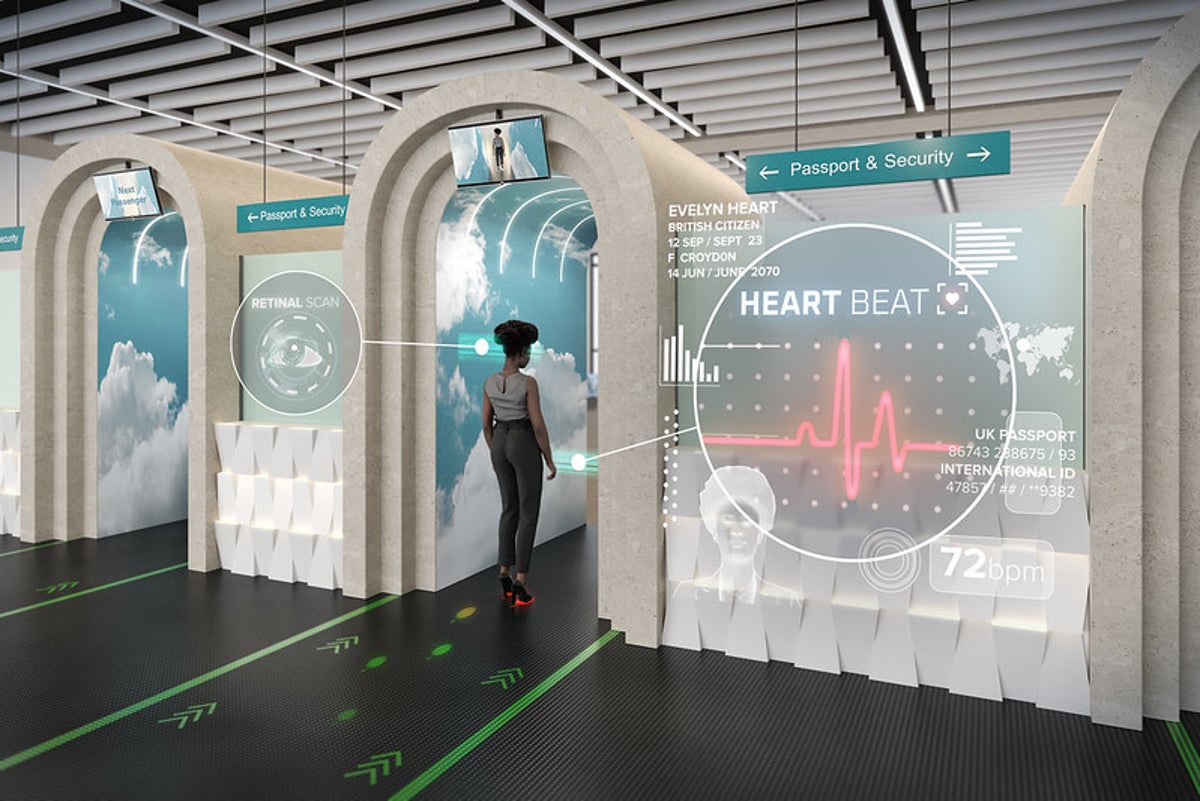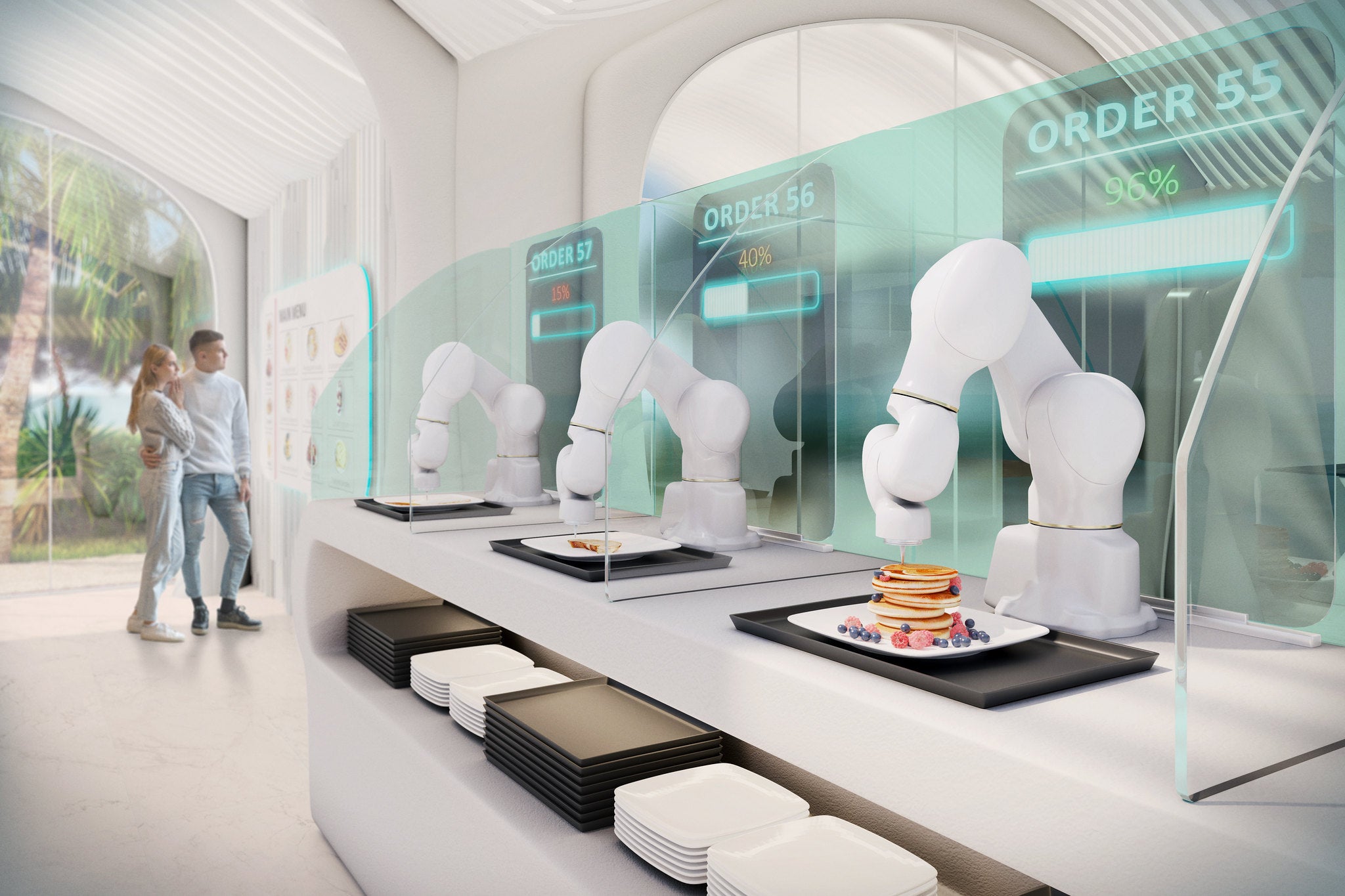
Forget lamenting the colour of your passport; in the future, passengers will move through airport security with heartbeat and biometric passports, predicts a new study.
The easyJet 2070: The Future Travel Report forecasts that in just 50 years’ time, passengers’ heartbeat signatures, which are unique to each person, and biometric details will be logged on a global system in the same way fingerprint scanning technology works today.
Travellers can also expect biomimetic sensory plane seats, which adapt to a person’s body shape, optoelectronic inflight entertainment beamed directly to passengers’ eyes, and digital holiday concierges by the year 2070, claim the academics behind the report.
Struggling to get to grips with the local lingo? No problem. A language hearing aid can be used that will translate and enable you to communicate in the language of your choice, alleges the report.
Hotel stays are also expected to become more tailored to each person, with hotel rooms becoming smart rooms with beds already pre-made to the exact desired firmness, ambient temperatures, and music playing which guests have selected in advance.
3D printing will also enable guests to print recyclable holiday clothes on arrival, while 3D-printed hotel buffet food will allow holidaymakers to print whatever they wish to eat while reducing food waste, according to the experts’ crystal balls.

Report authors also predict an increase in energy-efficient subterranean hotels built into the earth.
And if you’re struggling to choose a destination, bionic and Meta holiday previews enabling you to experience a location before booking are expected to become the norm.
Upon arrival, instead of simply hearing about history from a tourist guide, travellers might be able to don haptic suits and VR headsets on “time-travelling experiences” at historical sites, such as the original Olympic Games in Ancient Greece, in order to fully immerse themselves.
And forget the frenzied rush to the airport: in the future, electric vertical take-off and landing aircraft (eVTOL) air taxis could replace the airport car park shuttle, transporting 85 per cent of passengers from their homes directly to the terminal.
Heading up the report, Professor Birgitte Andersen of Birkbeck College, said: “My job centres around innovation, and it’s clear that through emerging technologies, the world of travel will look very different in the year 2070.
“The detailed analysis from the experts who have brought together this report are incredibly exciting and I can’t wait to see what’s in store for the future of travel in the coming decades.”
EasyJet CEO Johan Lundgren added: “The results of this report are incredibly exciting, and I know we will see easyJet continue leading the way to make many of these predictions become a reality for the holidaymakers of the future.”







